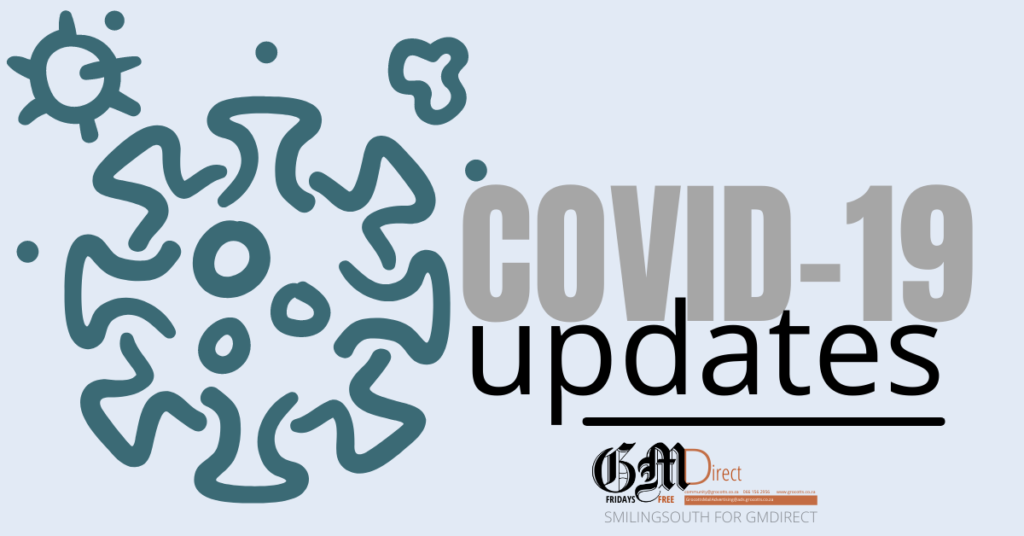In an effort to counter the increase in the number of COVID-19 infections, President Cyril Ramaphosa has announced that the country will be placed on Adjusted Alert Level 2 with effect from Monday 31 May.
Addressing the nation on the developments in the country’s response to the pandemic, the President said the Ministerial Advisory Committee on COVID-19 has recommended that the country urgently implement further restrictions.
“It bases this recommendation on the sustained increase in new cases in the last 14 days; increased hospital admissions in almost all provinces and an increase in the proportion of COVID tests that are positive.
“Further restrictions are necessary to ensure that health facilities are not overwhelmed and that lives that could be saved are not lost,” Ramaphosa said on Sunday.
The President’s address follows meetings in recent days of the National Coronavirus Command Council (NCCC), the President’s Coordinating Council (PCC) and Cabinet.
“Delaying the spread of the virus is especially important now to allow as many people as possible to be vaccinated before the third wave reaches its peak,” the President said.
With the tighter restrictions, the hours of curfew will start at 11pm and end at 4am.
“Non-essential establishments like restaurants, bars and fitness centres will need to close by 10pm. This is to allow their employees and patrons to travel home before the start of the curfew,” Ramaphosa said.
All gatherings will be limited to a maximum of 100 people indoors and 250 people outdoors.
“Where the venue is too small to accommodate these numbers with appropriate social distancing, then no more than 50% of the capacity of the venue may be used.
“This includes religious services, political events and social gatherings, as well as restaurants, bars, taverns and similar places,” the President said.
Funerals remain restricted to no more than 100 people, and, as before, night vigils, after-funeral gatherings and ‘after-tears’ gatherings are not allowed.
Several important measures remain in place.
“It remains mandatory for every person to wear a face mask that covers their nose and mouth at all times when in public spaces. It is a criminal offence not to do so.
“The owners and managers of public buildings, centres, shops, restaurants, taxis and buses all have a responsibility to ensure that people on their premises or in their vehicles wear masks, and that the appropriate social distancing measures are in place,” the President said.
Those who test positive for COVID-19 must self-isolate at home for a period of 10 days from when they first develop symptoms.
“If you have been in contact with a person who has COVID-19, you must also self-quarantine for a period of 10 days following your exposure, even if you do not show any symptoms.
“Identifying and isolating all contacts of a positive case is our best mechanism to prevent the virus from spreading further, and so it is very important that we all obey the rules for isolation and quarantine,” the President said.
Citizens urged to continue to observe health protocols
The President reiterated that citizens should observe all the health protocols by wearing a mask, observe social distancing and ensure proper ventilation.
“While the country is headed towards a third wave of infections, we do not yet know how severe this wave will be or for how long it will last.
“According to the scientists that advise government, the severity of this third wave will largely be determined by the amount of contact each of us has with other people,” the President said.
He advised South Africans to cut down their contacts during this time, wherever it is possible.
“That may mean postponing social engagements, avoiding public spaces and not travelling unless absolutely necessary. Gatherings are the greatest sources of transmission, whether its weddings, funerals, social parties, religious services, political meetings or simply gatherings of family and friends,” the President said.
The President urged citizens to avoid indoor spaces, as Coronavirus is spread through the air when a person speaks, coughs or sneezes.
“If you need to meet someone, including a member of your family, it is safer to do so outside in a well-ventilated space. Those who are at particular risk, including the elderly and those with comorbidities, should exercise caution and should limit their contacts as much as possible.
“If each of us makes this effort now, we will help to flatten the curve of infections. We will reduce the pressure on our hospitals, and, in doing so, we will save many lives,” the President said. – SAnews.gov.za


